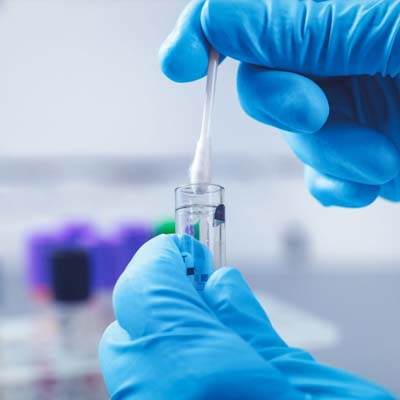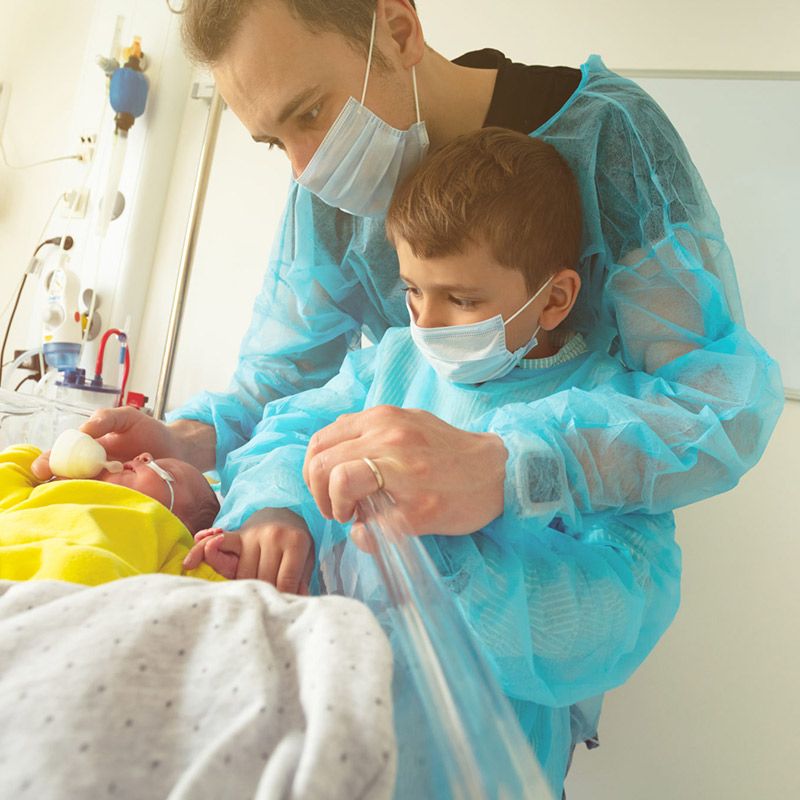Should You Get Genetic Testing for Breast Cancer?

August 25, 2021
One of the most effective ways to treat breast cancer and improve its prognosis is early detection. While most women undergo annual screening for breast cancer via mammogram and physical breast examinations, some women should consider expanding their surveillance regimen to include genetic testing.
According to the American Cancer Society, 5–10 percent of breast cancers are inherited, meaning they are the result of a genetic mutation passed on from a parent. Genetic testing can identify mutations in your genes or those of your close relatives, which can increase your chances of having breast cancer at some point in your life. Recent studies have found that such mutations can increase a woman’s risk by as much as 80 percent. The most common gene mutations associated with breast cancer are in BRCA1 and BRCA2.
Who Should Get Tested?
Nicole Salvatore, MS, LGC, cancer genetic coordinator at Ocean Medical Center, says that a number of factors can make a woman or man a candidate for genetic testing:
- Having a family or personal history of breast cancer (especially in both breasts of the same woman), ovarian cancer and/or multiple cancers, especially diagnosed at age 50 or younger
- Having a family history of male breast cancer
- Having a family history of BRCA1 or BRCA2 gene mutations
- Being of Ashkenazi Jewish descent
“Having a family history of breast cancer does not mean that you will definitely develop breast cancer in your lifetime,” Nicole says. “And having no family history of breast cancer does not mean you can’t develop it. No matter what your genetic makeup is, prevention and early detection are the best tools for improving outcomes and survival, and genetic screening is one important way to be proactive about your health.”
Tricia Morino, D.O., hematologist/oncologist at Southern Ocean Medical Center, says that when people discover they have BRCA1 and/or BRCA2 mutations, it can be a catalyst for other members of their family to begin surveillance. “If someone who has cancer has a gene mutation, that’s an indication to test someone in their family who doesn’t have a diagnosis,” Dr. Morino says. “I follow a few young women who do not have a cancer diagnosis yet but have a mutation that puts them at higher risk.”
For this reason, women with genetic risk factors may also want to get tested to provide their children a fuller picture of their inherited risk.
“The results of genetic testing for breast cancer can inspire many emotions,” says Angela Fay, MS, LCGC, a genetic counselor at Jersey Shore University Medical Center. “The genetic counseling team at Hackensack Meridian Health can help you understand what to anticipate, weigh your options and cope with whatever results you receive.”
Women who have BRCA1 and/or BRCA2 mutations may consult with their doctor to plan for more frequent or rigorous screening. They may also consider prophylactic treatment options, such as surgery.
The material provided through HealthU is intended to be used as general information only and should not replace the advice of your physician. Always consult your physician for individual care.
Find a doctor near me
Clinical Contributors
Overcoming Quarantine Anxiety

If you are feeling anxious or burnt out from COVID-related stress and isolation, you aren’t alone.
How to Protect Your Child From Lead

Exposure to lead can cause irreversible neurological damage, which is why all children should be tested.
Find a doctor near me

4 Ways You Can Help NICU Parents
Support NICU parents. Learn 4 ways to help from Joseph M. Sanzari Children's Hospital doctors. Offer practical and emotional support.

8 Possible Causes (and Treatments) for Your Dizziness
Research shows that dizziness, vertigo and balance problems affect about 15 percent of U.S. adults each year.

How COVID-19 Affects Kids Long Term
Learn how COVID-19 impacts children long-term. Discover post-COVID symptoms & find support for your child's recovery. Get expert pediatric care now.

